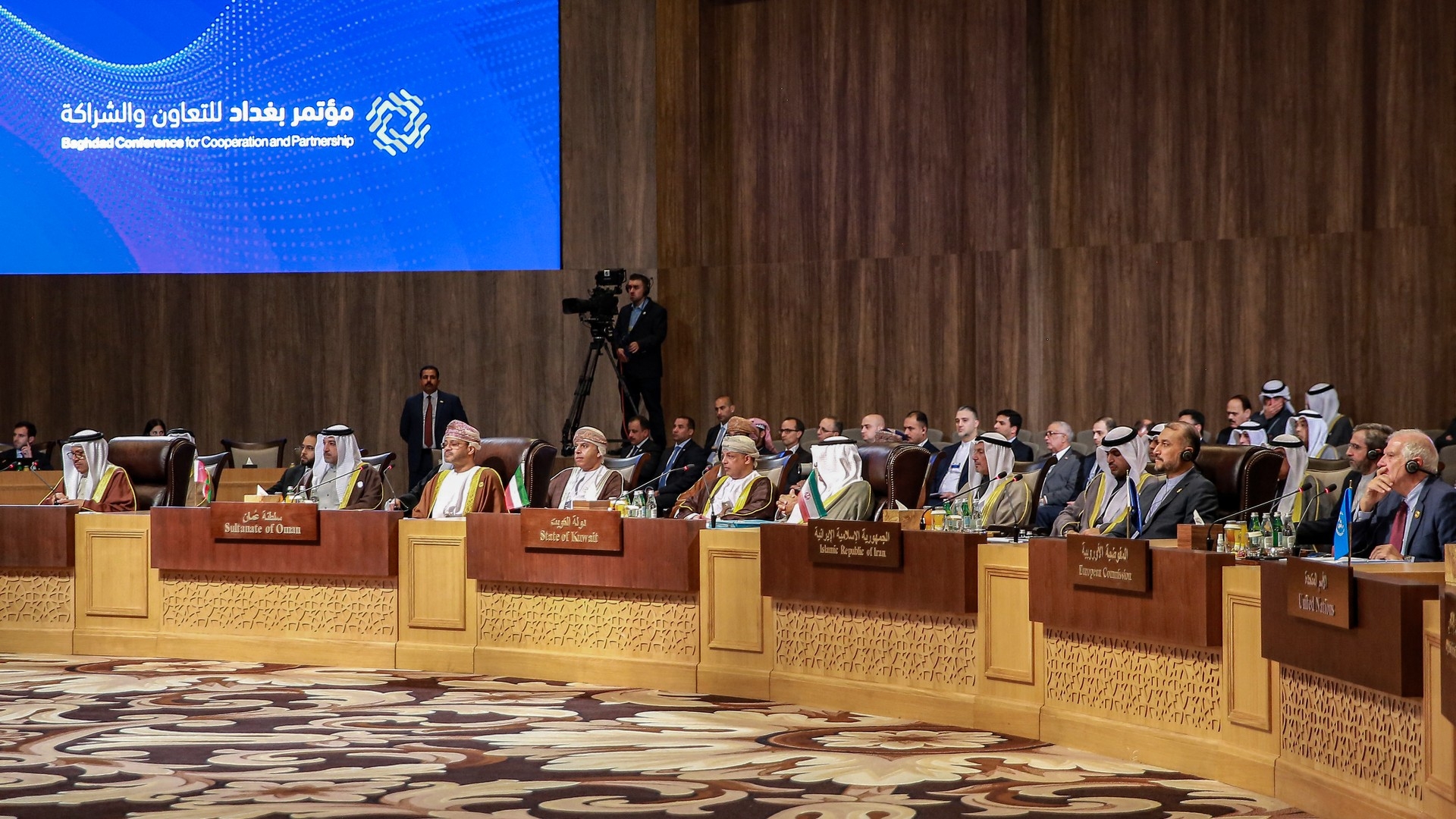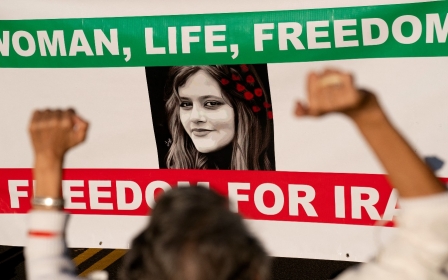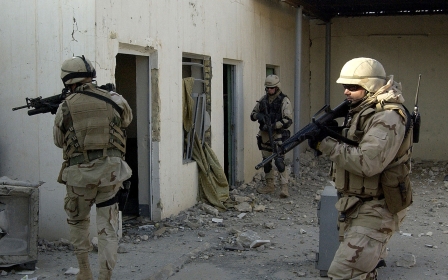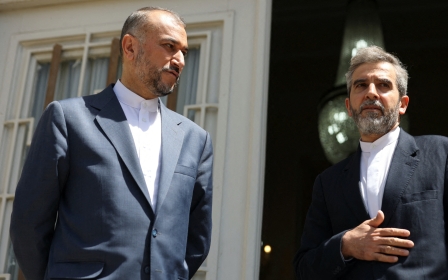EU tells Iran to 'stop internal repression and Russia support' during nuclear talks

The European Union’s foreign policy chief and Iran’s foreign minister held "necessary talks" during a regional conference in Jordan on Wednesday, as a standstill over the revival of the 2015 nuclear deal continues.
The EU’s Josep Borrell told Iran’s Hossein Amir-Abdollahian that discussions were “necessary… amidst deteriorating Iran-EU relations” during the Baghdad II summit at the Sweimeh Dead Sea resort.
Iran and the US have engaged in indirect talks to revive the nuclear accord since April last year.
Washington unilaterally withdrew from the pact in 2018 under former President Donald Trump. Iran reacted by backtracking on its obligations under the deal and began enriching uranium.
After a year-and-a-half of indirect talks, a final draft agreement was created by the EU, but several sticking points continue to exist, including the monitoring of uranium traces at Iranian nuclear sites.
New MEE newsletter: Jerusalem Dispatch
Sign up to get the latest insights and analysis on Israel-Palestine, alongside Turkey Unpacked and other MEE newsletters
Borrell told Amir-Abdollahian that Tehran should “immediately stop military support to Russia and internal repression in Iran”, the EU official tweeted on Tuesday.
“Agreed we must keep communication open and restore #JCPOA on basis of Vienna negotiations,” he added.
The White House welcomed the EU talks but added that the nuclear deal is not a US focus right now.
Macron calls for Iraq to 'choose own path'
Amir-Abdollahian "announced his country's readiness to engage directly with Ukraine to alleviate any misunderstanding regarding Tehran's position in the Ukraine war”, Iran’s foreign ministry said.
Tehran has acknowledged supplying drones to Russia, which were then used to target civilian infrastructure in Ukraine, but claimed these were sent before the war.
The foreign minister also criticised western support for mass protests which have swept the country after Mahsa Amini, a 22-year-old Kurdish woman, died in police custody in September.
Elsewhere during the summit, French President Emmanuel Macron called for Iraq to be allowed to choose its own path and not be dictated by foreign powers.
Iraq’s new prime minister, Mohammed Shia al-Sudani, who was also at the conference, is tasked with a delicate balancing act between allies Iran and the US, after several years of instability.
“There is a way that is not... a form of hegemony, imperialism, a model that would be dictated from outside," Macron told the summit.
“Iraq today is the scene of influences, incursions, destabilisations that are linked to the entire region.”
Middle East Eye delivers independent and unrivalled coverage and analysis of the Middle East, North Africa and beyond. To learn more about republishing this content and the associated fees, please fill out this form. More about MEE can be found here.




